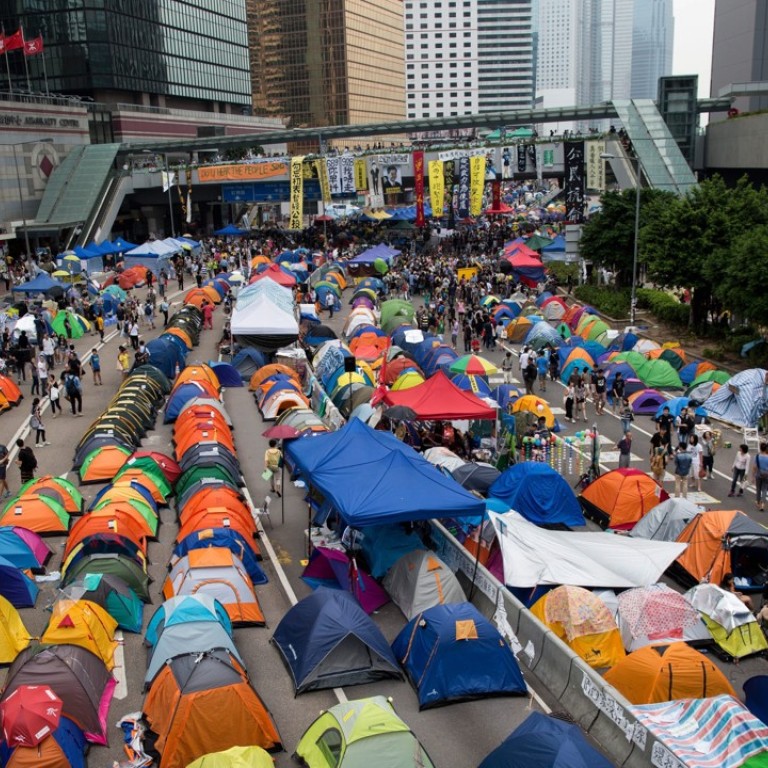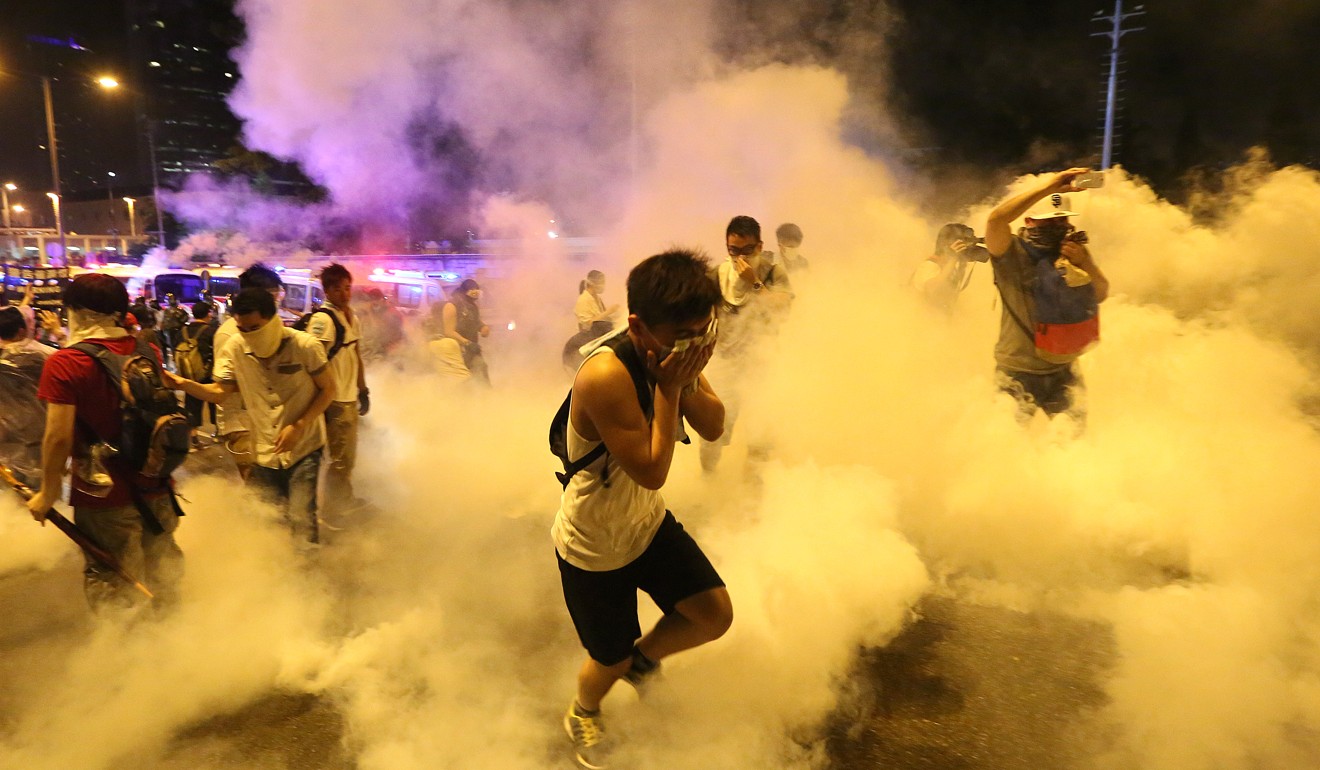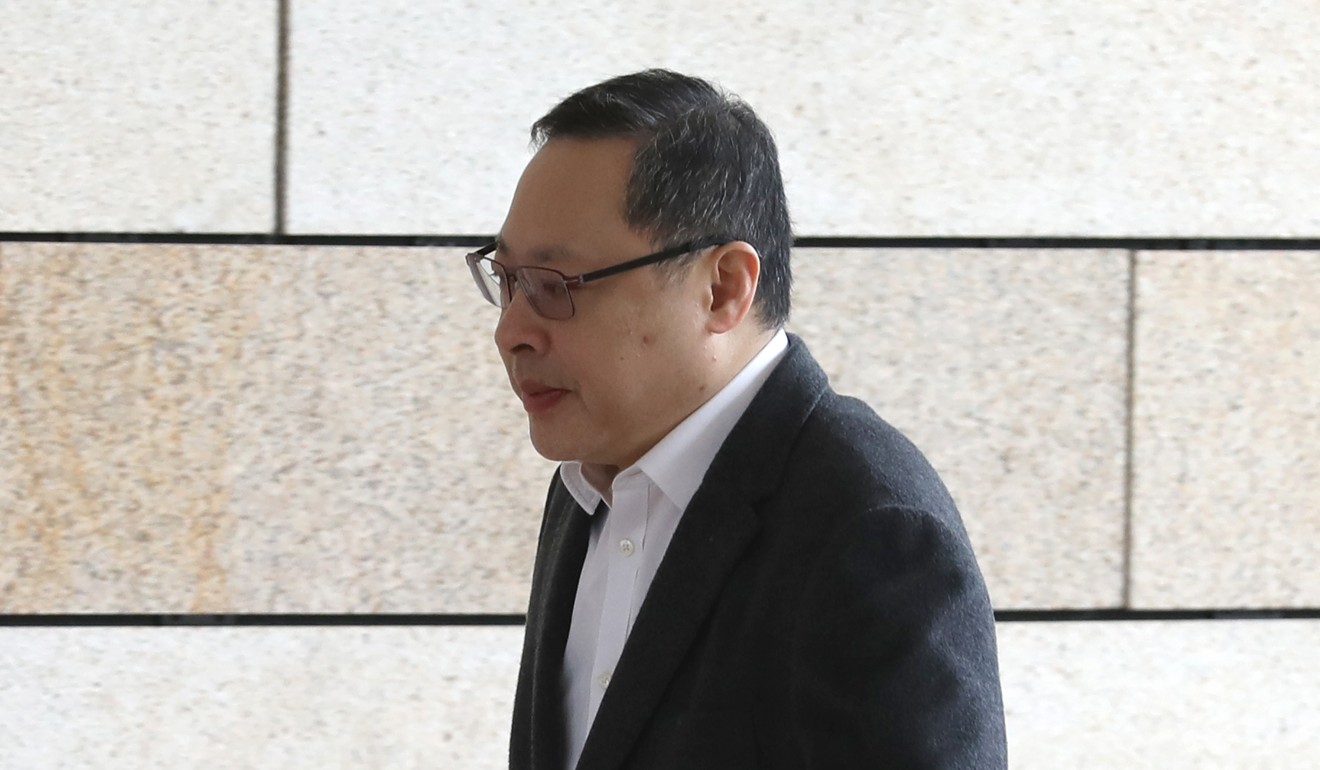
Occupy trio should be held responsible for what they did a year before protest began, Hong Kong’s top prosecutor tells court
- Director of Public Prosecutions makes closing argument in trial against nine leaders of 2014 movement
The freedom to protest does not include the right to camp out on the city’s roads, Hong Kong’s top prosecutor told the trial of nine leaders of the 2014 Occupy movement on Tuesday.
David Leung Cheuk-yin SC, the Director of Public Prosecutions, said while the law safeguarded the freedom to protest, that right should be exercised within reason
And, citing previous cases, he said those rights did not cover protests that affected the public on a long-term basis.

Leung was making his closing argument at West Kowloon Court, where the defendants, including the three founders Benny Tai Yiu-ting, Dr Chan Kin-man, and Reverend Chu Yiu-ming, are on trial in connection with a protest that brought parts of the city to a standstill for 79 days in 2014.
Following days of court footage, which showed tents erected at protest sites, Leung concluded from a 1995 court case in England, when protesters gathered on an area of the A344 near Stonehenge that, “the right to protest does not involve camping on the highways”.
He said the trio should be held responsible for their actions dating back to March 2013, because they were already preaching about the Occupy movement at the Union Church in Wan Chai, a year before the protest began on September 28 the following year.
Occupy leaders on trial: who they are and what they’re accused of
The prosecutor said the three clearly intended to obstruct part of the city for a “prolonged and indefinite” period, in the hope the government would respond to their political demands.
Several major roads in the Admiralty district of the city were blocked during the protests, with Harcourt Road, Tim Mei Avenue, and Fenwick Pier Road, all closed to traffic.
Leung revealed the civil disobedience movement had affected 164 bus routes, and 450,000 passengers.
All nine standing trial, Leung said, had called on people to join the protests on the first day of the movement.
They had, the prosecutor argued, urged people to bring along resources so that they could continue occupying the area, and told them on how to avoid being dispersed by police, who fired tear gas at the crowd on the first day.

Tai, Chan, and Chu have denied three joint counts: one of conspiracy to cause public nuisance; one of inciting others to cause public nuisance; and one of inciting people to incite others to cause public nuisance.
Five other defendants, legislators Tanya Chan, and Shiu Ka-chun, former student leaders Tommy Cheung Sau-yin, and Eason Chung Yiu-wa, and Raphael Wong Ho-ming, vice-chairman of the League of Social Democrats, have all denied the two incitement charges.
Former Democratic Party lawmaker Lee Wing-tat has denied one count of incitement to commit public nuisance.
The case continues before Judge Johnny Chan Jong-herng on Wednesday, where Tai, a law professor at University of Hong Kong, has said he will make his own closing argument.

